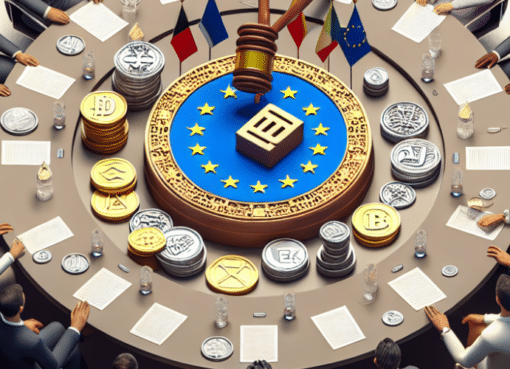In a pivotal development for the global payments landscape, Visa, one of the world’s leading payment processing giants, has announced a comprehensive integration of blockchain technology into its transaction networks. This groundbreaking move is set to revolutionize the way payments are processed across the globe, offering unprecedented speed, security, and transparency for millions of transactions.
Visa Embraces Decentralization for Enhanced Payment Processing
Visa’s latest initiative integrates blockchain technology to leverage decentralized processing capabilities, aiming to reduce the time and cost associated with international transactions. By adopting blockchain, Visa will enable direct transactions between parties, effectively eliminating the need for intermediaries. This method not only accelerates the transaction process but also significantly lowers the fees incurred by users.
John Mulligan, Senior Vice President of Global Product Innovation at Visa, shared insights during the official announcement. “By incorporating blockchain technology, we are propelling forward into a new era of digital finance. This technology allows us to offer our users more efficient, secure, and faster payment solutions on a global scale,” Mulligan stated.
How Blockchain Integration Benefits Global Payments
The integration of blockchain into Visa’s system tackles several critical challenges currently faced in the payment processing industry. First, blockchain’s inherent nature of decentralized, immutable records offers an extra layer of security against fraudulent activities and data breaches. Secondly, the technology ensures transparency in transactions, which is increasingly demanded by consumers and regulators alike.
Moreover, blockchain technology’s capability to process transactions in real-time presents a significant advantage for international commerce, where traditional banking transactions can sometimes take several days to clear. This improvement is particularly beneficial for businesses and consumers who rely on swift transaction times to manage operations and personal finance effectively.
Industry Experts Weigh In
Industry experts are lauding Visa’s blockchain integration as a major step towards modernizing the financial infrastructure. According to Theresa Lin, a blockchain technology consultant, “Visa’s adoption of blockchain could set a benchmark for other players in the financial services industry, catalyzing a broader shift towards this revolutionary technology.”
Financial analysts also predict that this integration could empower smaller businesses and startups, providing them with the tools to compete on a global scale previously dominated by larger corporations with more robust banking support.
Potential Challenges and Consumer Impact
While the integration of blockchain is seen as a largely positive development, it does bring potential challenges. The scalability of blockchain technology, especially handling the vast volume of transactions that Visa processes daily, is a concern. There’s also the need for regulatory compliance across different countries, which can complicate the adoption of blockchain technology on a global scale.
For consumers, Visa’s move towards blockchain could mean faster international payments and reduced costs associated with foreign currency transactions. It also might improve consumer access to financial services, particularly in underbanked regions of the world where traditional banking infrastructure is lacking or non-existent.
Looking Forward
Visa’s initiative marks a significant milestone in the adoption of blockchain technology in mainstream financial operations. As this technology continues to evolve, its integration into global payment networks could redefine financial transactions’ efficiency and security.
Furthermore, Visa’s blockchain venture could inspire further innovation and adoption of this technology across various sectors, potentially leading to broader economic changes and advancements.
As the world continues to embrace digital transformations, Visa’s integration of blockchain into its core systems is not just an enhancement of its services but a sign of the evolving landscape of global finance. This move by Visa could be the catalyst needed to usher in a new era of financial technology, characterized by increased efficiency, security, and inclusivity in global economic participation.




